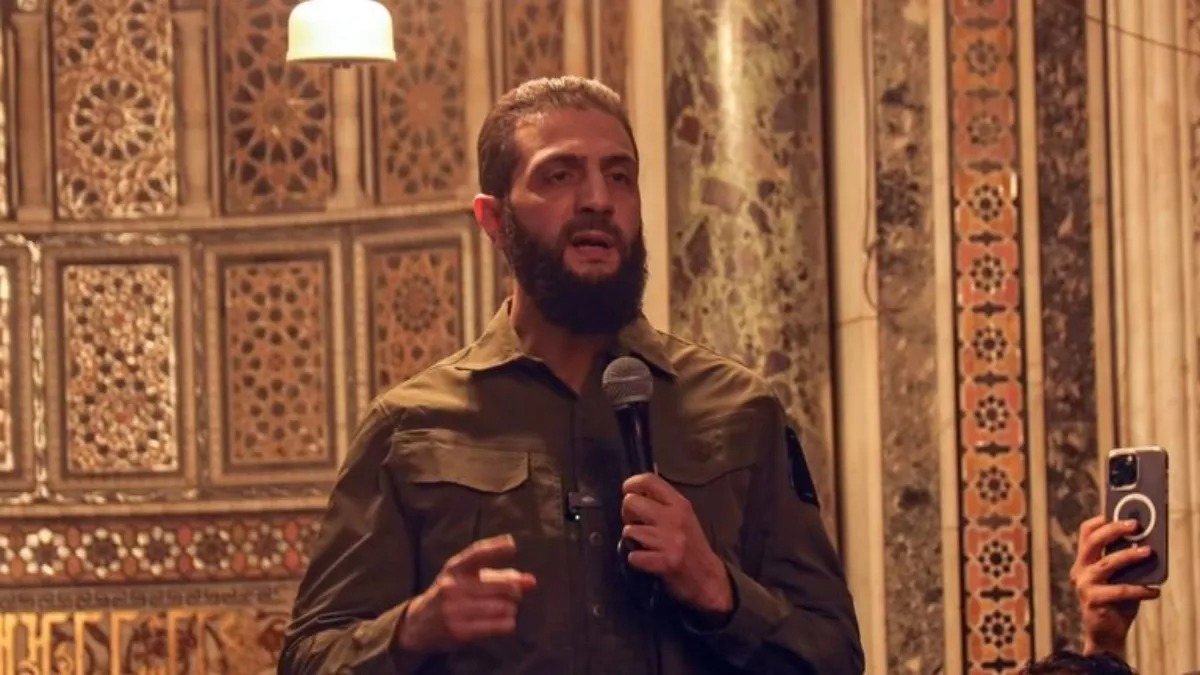
Abu Mohammad al-Jolani alias Ahmad al-Shara said that the new government will take action against senior officials responsible for torture and abuse during the previous regime. Let us tell you that Abu Mohammad al-Jolani is a Syrian rebel leader who led the attack that ended the rule of Bashar al-Assad.
Sharaa met outgoing Prime Minister Mohammed al-Jalali to coordinate a transfer of power that guarantees the provision of services to the Syrian people, a statement posted on rebel Telegram channels said.
The statement said the new government will not hesitate to hold accountable criminals, murderers, security and military officials involved in committing atrocities against the Syrian people.
The movement against Assad began in 2011
The movement against the Bashar al-Assad regime began in 2011 but he has been subjected to a harsh crackdown that has left nearly half a million people dead and forced many more to flee the country.
With the support of allies Russia and Iran, Assad managed to fend off any rebel attacks for over a decade. But while his allies were busy fighting in Ukraine and Gaza, Assad's cover was exposed and the rebels seized the opportunity. As rebel tanks rolled into Damascus, Assad fled Syria, ending his tribe's five-decade reign.
Regime change in Syria came as a rebirth for thousands of prisoners held in Syria’s prisons and detention centers, many of whom were imprisoned for dissent.
Thousands of people gathered outside Saydnaya prison near Damascus, which has become synonymous with the Assad regime's worst atrocities, to look for their relatives, according to news agency AFP.
More than 1 lakh prisoners died in Syrian jails
More than 100,000 prisoners are believed to have died in Syrian prisons during Assad's rule - including by hanging and natural deaths - according to a 2021 report by the UK-based Syrian Observatory for Human Rights. More than 30,000 of these deaths occurred in Saydnaya alone.
Amnesty International's investigation found that "the killings, torture, enforced disappearances and exterminations committed in Saydnaya since 2011 have been part of an assault against the civilian population that has been widespread and systematic and carried out in furtherance of state policy". There were stories of torture at Saydnaya that it was known as a "human slaughterhouse".
"With Assad gone, family members of these prisoners, many of whom have been in custody for years, have been looking for them," she told AFP. Among them is 65-year-old Aida Taha, who is looking for her brother arrested in 2012. "I ran like crazy. But I found out that some prisoners were still in the basement. There are three or four floors underground."
A finance ministry civil servant said people were afraid to speak out. "It can't be described in words. We never thought this nightmare would end. We have been reborn. We were afraid to speak out for 55 years, even at home. We used to say the walls have ears," Rim Ramadan, 49, told AFP.
The Syrian parliament, which previously sided with Assad, has said it supports "the people's desire to build a new Syria towards a better future governed by law and justice". The Baath Party has said it will support a transitional phase in Syria aimed at protecting the country's unity.
Hayat Tahrir al-Sham, which led the rebel groups' assault, had previously been banned by Western powers for its links to al-Qaeda.
Germany and France are supporting Syria
As Syria moves towards reconstruction, Germany and France have said they are ready to cooperate with the new leadership "on the basis of fundamental human rights and the protection of ethnic and religious minorities".
British Prime Minister Keir Starmer has said HTS must reject "terrorism and violence" before it can join forces with the UK. US Secretary of State Antony Blinken in Washington DC is determined to prevent IS from regaining safe haven in Syria.
“We have a clear interest in doing everything we can to prevent the fragmentation of Syria, the mass exodus from Syria, and of course the export of terrorism and extremism,” he said.
The United Nations has said the Assad regime must be held accountable. The ousted leader has reportedly fled to Russia, but the Kremlin has not confirmed this.
Read More: California avalanche wreaks havoc: Bodies of 8 of 9 skiers recovered, one still missing
--Advertisement--

 Share
Share



